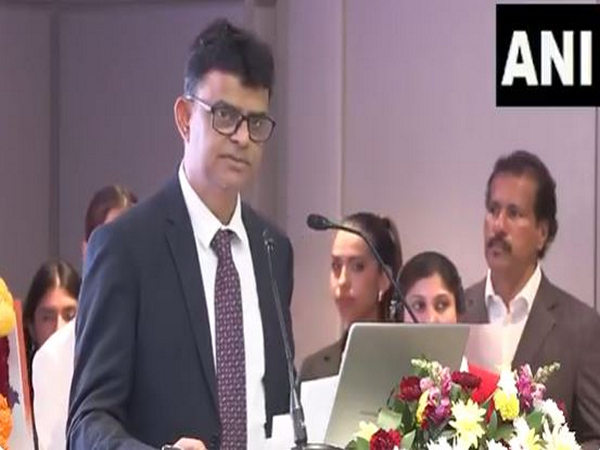
Barcelona [Spain], July 18 (ANI): India andSpainmaintain a robust economic and commercial connection, with bilateral trade reaching approximately USD 10 billion, statedRaghvendra Kumar Singh, Principal Secretary to Madhya Pradesh Chief Minister Mohan Yadav, during a speech in Barcelona on Thursday.
"India and Spainmaintain a strong and prosperous economic and commercial relationship. The overall trade betweenSpainand India is approximately 10 billion dollars. There are 280 Spanish firms active in India and 90 Indian companies functioning inSpain," Singh said.
Emphasizing the possible effects of the continuing India-EU FreeTradeSingh mentioned, "We have numerous opportunities... through the India-EU trade relationship, which is expected to be finalized, I hope, by the end of this year, creating new prospects for Spanish businesses in India and Indian enterprises in"Spain."
Promoting Madhya PradeshAs an investment location, Singh mentioned that the centrally situated state offers significant potential across various industries.Madhya Pradeshis located in the center of India. It is known as the Central Provinces. In the past, it was called the Central Provinces. It is the second largest state in terms of area, fifth largest in terms of population, and has a population of 88 million. The population is 88 million. It has a much larger population thanSpain," he said.
"We are home to 2 million young people aged between 15 and 29. We rank as the second-largest producer of food grains in India and are the leading exporter of wheat in the country," he added.
Singh also highlighted the state's environmental advantages and experienced labor force. "We are likely the cleanest state in the whole country of India. We have 32 percent of forest coverage inMadhya Pradesh, which is approximately 12 percent of the total national forest area in India. When you wish to make an investment,Madhya Pradeshcan serve as a perfect location because we offer you chances across various sectors, and we do not restrict ourselves to just a few areas, allowing you to invest in numerous fields.
He added, "Our working population constitutes 47 percent, with 200,000 graduates entering the job market annually. We experience a very low dropout rate. We offer an excellent work-life balance and a high standard of living."
Highlighting the state's industrial setup, Singh stated, "We possess a large number of skilled workers, and a plentiful water supply for industries—over 1,000 million cubic meters at highly reasonable rates. We are a state with excess power generation, producing 31 gigawatts of electricity, with more than 20 percent coming from renewable sources—approximately 6 gigawatts at present."
He stated, "However, the Honorable Prime Minister has committed to generating 550 gigawatts of power by 2030,Madhya Pradeshhas also made a commitment that, starting from 6 gigawatts now, we aim to reach 33 gigawatts of renewable energy by 2030."
Continuing with this wider perspective on sustainable development, Chief MinisterMohan Yadav, during his trip toSpain, visited Mercabarna -- one of Europe's largest integrated wholesale food markets -- to examine models that could aid in the development of Mega Food Parks, agricultural export zones, and multi-modal logistics infrastructure inMadhya Pradesh.
In a post on X, MP CM Yadav mentioned that he participated in a conversation focused onMadhya PradeshTheir initiatives to develop integrated logistics facilities, agricultural export areas, and large food parks.
On the third day of theSpain visit under Madhya PradeshGlobal Dialogue 2025, Mercamadrid, one of Europe's biggest combined wholesale food markets, was inspected, along with conversations with its representatives. The talks centered aroundMadhya PradeshHis plan for establishing Mega Food Parks, agricultural export zones, and multi-modal logistics infrastructure. The smooth functioning of Mercamadrid is expected to become a historic example of cooperation for the state's agricultural industry," he mentioned in a post on X.
Yadav also highlighted the importance of a government-backed environment to shield farmers from falling prices during periods of high output, while also pointing out the opportunity for value-added processing to increase farmers' earnings and enhance export possibilities.
We are currently at Mercabarna inSpainA 250-acre campus where farmers not only vend their crops but also get assistance in handling excess harvests. We are optimistic that, as the irrigated area inMadhya PradeshAs production increases and farmers observe high crop outputs, we can implement a comparable framework. In this scenario, we have started ongoing initiatives to establish a favorable environment — a government-backed system that links different communities. When there is a surplus in supply, market prices usually decrease. To shield farmers from these price declines, we require systems that facilitate processing and enhance value where it is most essential," the MP CM stated.
Putting such a model into practiceMadhya Pradeshmight be a turning point — benefiting both farmers and the state's economy — creating strong business prospects inside India and in global markets," he added.
The MP Chief Minister will be remaining inSpainuntil July 19 as part of his trip. (ANI)





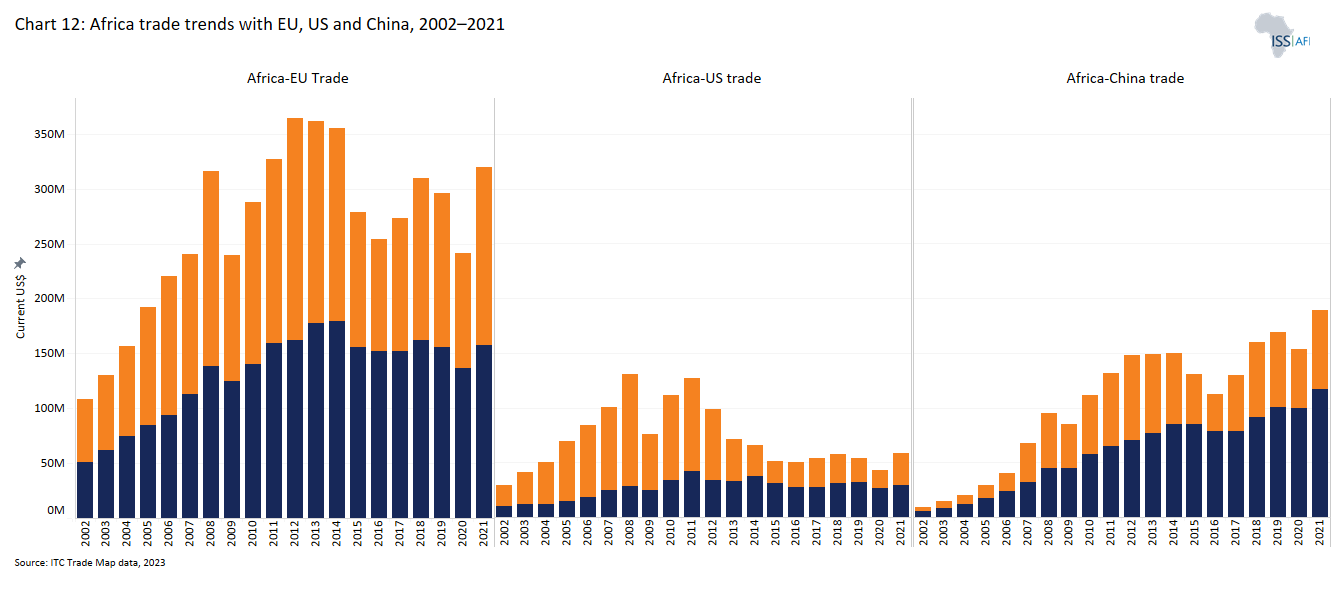
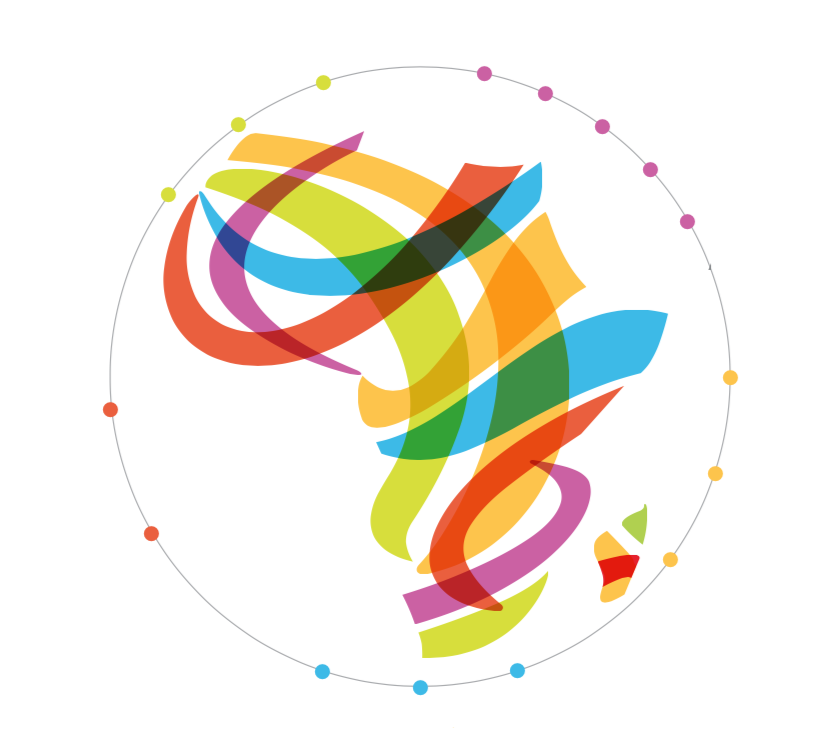 Dar es Salaam. The East African Community (EAC) has taken over the rotating chairmanship of the COMESA-EAC-SADC Tripartite Task Force (TTF) at a crucial time, reigniting hopes for a more unified and integrated regional trade system. However, a central question remains: can this leadership role help the EAC overcome its internal challenges and lead to a genuinely tariff-free region? The TTF unites three major Regional Economic Communities (RECs): the Common Market for Eastern and Southern Africa (COMESA), the East African Community (EAC), and the Southern African Development Community (SADC). It was created to coordinate the implementation of the Tripartite Free Trade Area (TFTA). Launched in 2015, the TFTA aims to promote market integration, industrial growth, and infrastructure development across 29 African countries, serving a population of over 700 million. Yet, almost a decade later, progress has been slower than anticipated due to ongoing non-tariff barriers, delayed ratifications, and a lack of unified customs systems among member states. On July 25, 2024, the TFTA Agreement officially came into effect after securing the necessary 14 ratifications. However, the real challenge lies in putting the agreement into practice, a task now entrusted to the EAC as it assumes the TTF's leadership. EAC Secretary General, Ms Veronica Nduva, speaking at a high-level roundtable in Malabo, Equatorial Guinea, on July 14, 2025, advocated for a continent-wide resource mobilisation strategy to replace fragmented efforts that have hindered progress. "We must abandon disjointed approaches. Africa needs a harmonised strategy for resource mobilisation to effectively implement Agenda 2063," she stated. "We see the TFTA as a strategic tool to deepen integration, boost competitiveness, unlock intra-African trade, and advance inclusive industrialisation," she added. Ms Nduva also highlighted the importance of blended financing models involving public, private, and philanthropic capital, along with the use of technology to enhance coordination and accountability. The big question While the EAC’s assumption of leadership is diplomatically significant, the bloc has faced difficulties in implementing its integration protocols. Several EAC Partner States have previously failed to uphold agreed tariff removals, leading to internal trade disputes and delays in harmonisation efforts. Trade tensions between Kenya and Tanzania over products such as sugar, maize, and milk have revealed the inconsistent application of EAC trade rules, undermining the bloc’s credibility in broader integration efforts. According to Dr Paul Omollo, a regional trade policy analyst based in Dar es Salaam, the EAC must first address its shortcomings. "The EAC has made impressive commitments on paper. But implementation remains its biggest weakness," Dr Omollo told The Citizen by phone. "Taking over TTF leadership is significant, but the EAC must back that up with real reforms at home. It must demonstrate that regional integration can work, starting with its borders." What does chairing the TTF mean? Assuming the TTF chairmanship places the EAC in charge of guiding the finalisation of tariff offers, adoption of rules of origin, and encouraging ratification by the remaining states. The bloc is also expected to lead the revival of the TFTA’s industrial development pillar, one of its key components. "Our focus is to ensure that the TFTA becomes fully operational, not just in name but in action," said Ms Nduva. "We are pushing for the ratification of both the trade and movement of businesspeople agreements," she said. Experts believe this leadership position could allow the EAC to influence harmonised customs policies, coordinated infrastructure investments, and the development of joint industrial zones, provided there is strong political will among member states. "The TFTA could be a game-changer if it builds synergies across the three RECs," said a policy adviser at TradeMark Africa, Mr Humphrey Ramela. "The EAC’s leadership is timely. But success depends on aligning national interests with regional ambitions," he added. Another key theme from the Malabo roundtable was financial independence, with Ms Nduva reiterating the need for African nations to reduce reliance on external donors and adopt African-led financing models. "Austerity must go hand-in-hand with innovation. Resources allocated for development must be managed with discipline and efficiency," she noted. The African Union Commission Chairperson, Mahmoud Ali Youssouf, echoed this sentiment, urging member states to finance their development agendas and adopt the instruments required to operationalise the TFTA by the time of the next Tripartite Council of Ministers meeting. "African ownership is not optional; it is the only path to sustainable development," said Mr Youssouf. With preparations for the fourth Tripartite Summit underway, during which the TFTA will be formally launched, expectations are high. The EAC’s challenge will be to not only champion regional integration at the tripartite level but also prove its commitment to seamless trade within its borders.
Dar es Salaam. The East African Community (EAC) has taken over the rotating chairmanship of the COMESA-EAC-SADC Tripartite Task Force (TTF) at a crucial time, reigniting hopes for a more unified and integrated regional trade system. However, a central question remains: can this leadership role help the EAC overcome its internal challenges and lead to a genuinely tariff-free region? The TTF unites three major Regional Economic Communities (RECs): the Common Market for Eastern and Southern Africa (COMESA), the East African Community (EAC), and the Southern African Development Community (SADC). It was created to coordinate the implementation of the Tripartite Free Trade Area (TFTA). Launched in 2015, the TFTA aims to promote market integration, industrial growth, and infrastructure development across 29 African countries, serving a population of over 700 million. Yet, almost a decade later, progress has been slower than anticipated due to ongoing non-tariff barriers, delayed ratifications, and a lack of unified customs systems among member states. On July 25, 2024, the TFTA Agreement officially came into effect after securing the necessary 14 ratifications. However, the real challenge lies in putting the agreement into practice, a task now entrusted to the EAC as it assumes the TTF's leadership. EAC Secretary General, Ms Veronica Nduva, speaking at a high-level roundtable in Malabo, Equatorial Guinea, on July 14, 2025, advocated for a continent-wide resource mobilisation strategy to replace fragmented efforts that have hindered progress. "We must abandon disjointed approaches. Africa needs a harmonised strategy for resource mobilisation to effectively implement Agenda 2063," she stated. "We see the TFTA as a strategic tool to deepen integration, boost competitiveness, unlock intra-African trade, and advance inclusive industrialisation," she added. Ms Nduva also highlighted the importance of blended financing models involving public, private, and philanthropic capital, along with the use of technology to enhance coordination and accountability. The big question While the EAC’s assumption of leadership is diplomatically significant, the bloc has faced difficulties in implementing its integration protocols. Several EAC Partner States have previously failed to uphold agreed tariff removals, leading to internal trade disputes and delays in harmonisation efforts. Trade tensions between Kenya and Tanzania over products such as sugar, maize, and milk have revealed the inconsistent application of EAC trade rules, undermining the bloc’s credibility in broader integration efforts. According to Dr Paul Omollo, a regional trade policy analyst based in Dar es Salaam, the EAC must first address its shortcomings. "The EAC has made impressive commitments on paper. But implementation remains its biggest weakness," Dr Omollo told The Citizen by phone. "Taking over TTF leadership is significant, but the EAC must back that up with real reforms at home. It must demonstrate that regional integration can work, starting with its borders." What does chairing the TTF mean? Assuming the TTF chairmanship places the EAC in charge of guiding the finalisation of tariff offers, adoption of rules of origin, and encouraging ratification by the remaining states. The bloc is also expected to lead the revival of the TFTA’s industrial development pillar, one of its key components. "Our focus is to ensure that the TFTA becomes fully operational, not just in name but in action," said Ms Nduva. "We are pushing for the ratification of both the trade and movement of businesspeople agreements," she said. Experts believe this leadership position could allow the EAC to influence harmonised customs policies, coordinated infrastructure investments, and the development of joint industrial zones, provided there is strong political will among member states. "The TFTA could be a game-changer if it builds synergies across the three RECs," said a policy adviser at TradeMark Africa, Mr Humphrey Ramela. "The EAC’s leadership is timely. But success depends on aligning national interests with regional ambitions," he added. Another key theme from the Malabo roundtable was financial independence, with Ms Nduva reiterating the need for African nations to reduce reliance on external donors and adopt African-led financing models. "Austerity must go hand-in-hand with innovation. Resources allocated for development must be managed with discipline and efficiency," she noted. The African Union Commission Chairperson, Mahmoud Ali Youssouf, echoed this sentiment, urging member states to finance their development agendas and adopt the instruments required to operationalise the TFTA by the time of the next Tripartite Council of Ministers meeting. "African ownership is not optional; it is the only path to sustainable development," said Mr Youssouf. With preparations for the fourth Tripartite Summit underway, during which the TFTA will be formally launched, expectations are high. The EAC’s challenge will be to not only champion regional integration at the tripartite level but also prove its commitment to seamless trade within its borders.
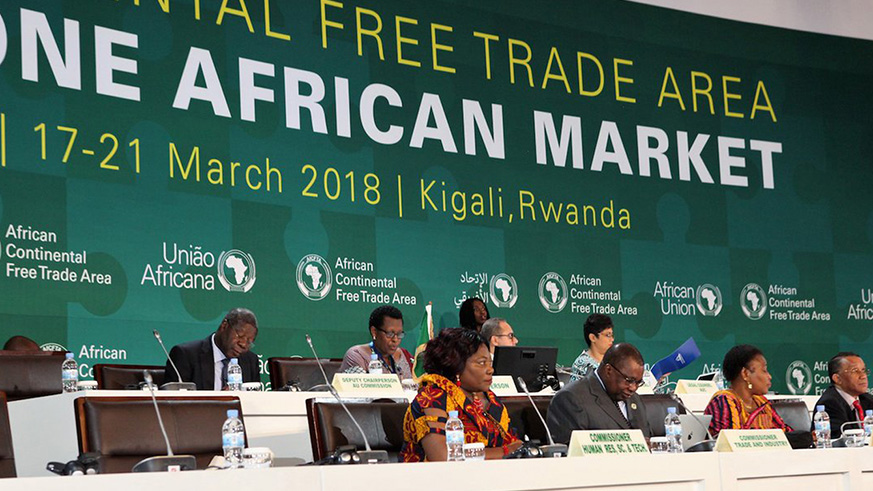
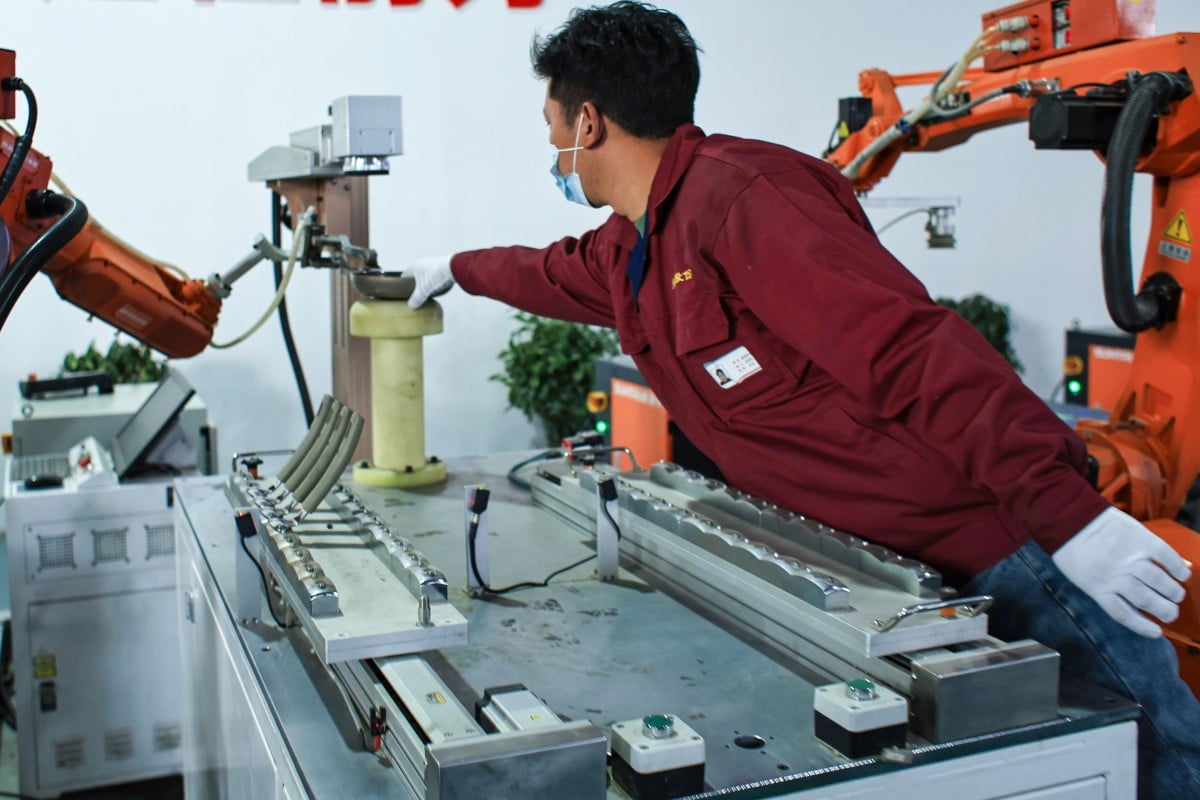
 "Each investment is a risk," and Chinese factories are experiencing "significant losses" by manufacturing in Southeast Asian countries subjected to Trump's tariffs, as reported by industry experts.
"Each investment is a risk," and Chinese factories are experiencing "significant losses" by manufacturing in Southeast Asian countries subjected to Trump's tariffs, as reported by industry experts.

